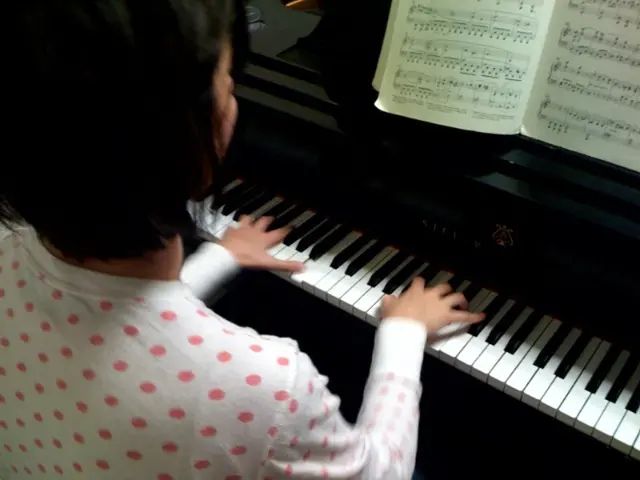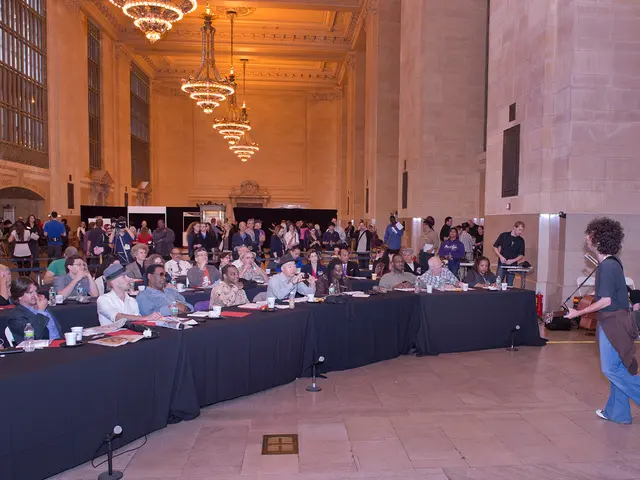Women face the most scrutiny during times of crisis, as per Cazzu's statement.
Argentine musician and rapper Cazzu has faced two years of media scrutiny, with her personal relationships, pregnancy, and subsequent breakup becoming public fodder. Despite this, she opted to remain silent, allowing the public to speculate on her circumstances.
Through her silence, Cazzu, born Julieta Emilia Cazzuchelli, made a powerful statement about the social and media pressure women regularly encounter. This pressure was evident in the debates about her alleged solitude, the rumors of her partner's absence, or the confusion over whether she was a victim or a villain.
In an interview, Cazzu touched on the words of Simone de Beauvoir, stating that when a crisis hits—economic, political, or social—the rights of women are the first to be questioned. She emphasized the importance of staying vigilant and continuing the fight for women's rights.
Cazzu is now making her return to the music scene and Mexico, debuting not only as a performer but also as a writer. Her album "Latinaje" represents a departure from her previous work, incorporating elements of trap, reggaeton, bolero, and cumbia. Simultaneously, her first book, "Perreo, a revolution," offers an intimate and political exploration of the body, motherhood, desire, and reggaeton as a language of female resistance.
In both her album and her book, Cazzu has subtly responded to the public judgment she faced as a mother and media figure without directly addressing her former partner, Christian Nodal. Instead, she views this moment as part of her personal transformation, which she believes is ongoing rather than a brief "break" or awakening.
In her book, Cazzu delves into themes such as sisterhood, desire, motherhood, and issues related to the female body, which she feels are being overlooked. She is particularly concerned about the current crisis in her home country that threatens the progress feminism has made.
Cazzu experiments with more traditional genres like ballads and corridos tumbados in "Latinaje," without abandoning her urban roots. She argues that these genres, often criticized, accurately reflect real-life struggles like poverty, lack of education, and hunger. Censorship should never be an option, she insists.
Being in Mexico again brings mixed emotions for Cazzu, as she is now a mother to Inti. She is eager to return and share Mexico with her daughter, having fond memories of her previous time there. Mexico remains an important territory for her, as it has witnessed some of the biggest moments in her career.
Cazzu will perform in Mexico City on October 14, Guadalajara on October 16, and Monterrey on October 18. Fans can follow the developments on our WhatsApp channel, keeping up with the most relevant news, opinion articles, entertainment, trends, and more.
- Cazzu's Silence on Personal Matters Sparks Discussion on Women's Issues: The Argentine musician's decision to remain silent in the face of media scrutiny has been interpreted as a powerful statement about the pressure women face in society, particularly in the realm of health-and-wellness and women's health.
- Cazzu's Foray into Literature Addresses Overlooked Themes: In her book "Perreo, a revolution," Cazzu tackles themes such as sisterhood, desire, motherhood, and female body issues, which she believes are often overlooked, especially in the context of her home country's current crisis that threatens the progress of feminism.
- Cazzu's Upcoming Performances Reflect Her Diverse Inspirations: As Cazzu prepares to perform in Mexico, she will present a fusion of genres ranging from trap and reggaeton to bolero and cumbia, while also exploring more traditional styles like ballads and corridos tumbados, asserting that these genres accurately reflect real-life struggles and should never be subject to censorship.








